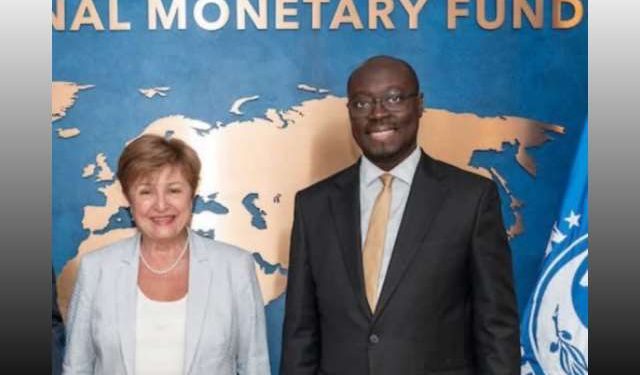IMF Commences Fifth Review of Ghana’s Programme Today
The International Monetary Fund (IMF) will today, September 29, begin its fifth review of Ghana’s performance under the $3 billion Extended Credit Facility (ECF) programme.
The Fund’s full mission team, led by Mission Chief Stéphane Roudet, arrived in Accra over the weekend and will spend two weeks engaging technical staff of the Ministry of Finance and the Bank of Ghana (BoG). Meetings will also be held with BoG Governor, Dr Johnson Asiama, and the Finance Minister, Dr Ato Forson.
Sources close to the process indicate that unresolved arrears clearance remains a key concern, with government yet to finalise its audit on expenditures for construction and projects in 2024.
Attention is also expected on whether recent monetary policy rate cuts are sufficient given the sharp fall in inflation, as well as on the central bank’s reserve build-up and interventions in the foreign exchange market.
This review is the penultimate one before Ghana concludes its IMF programme in May 2026, with the final review scheduled for April 2026. Analysts caution that maintaining fiscal discipline after the programme ends will prove challenging, prompting some donor partners to call for additional “shock absorbers” to safeguard stability.
Government, however, has sought to calm fears, maintaining that measures are already in place to ensure disciplined expenditure and market confidence beyond the IMF’s exit.
If successful, Ghana is expected to receive about US$360 million in October 2025, bringing total disbursements under the programme to US$2.66 billion. The country has so far received approximately US$2.3 billion since signing onto the programme in May 2023.
According to sources, the review will assess Ghana’s economic data up to June 2025. Discussions are expected to cover inflation dynamics, reserve sustainability, the ongoing arrears audit, recapitalisation needs of weaker private banks, the health of state-owned banks, revenue mobilisation challenges, arrears accumulation in statutory funds, and shortfalls in social spending.
The $3 billion ECF programme was approved by the IMF Executive Board in May 2023 with the goal of restoring fiscal sustainability through enhanced revenue mobilisation and efficient expenditure, protecting vulnerable groups, advancing tax and energy sector reforms, and preserving financial stability. It also aims to curb inflation, rebuild reserves under a flexible exchange rate regime, and create conditions conducive to private investment, growth, and job creation.








